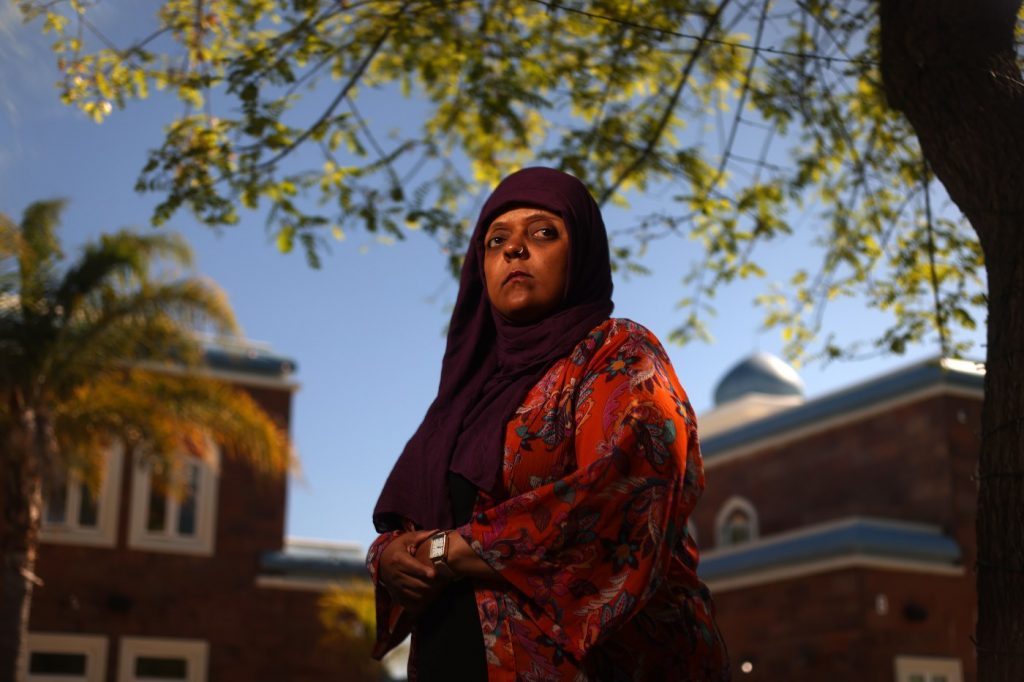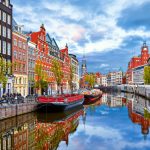Whenever Hayward resident Alaa Suliman reads the news these days, she is constantly disappointed at the scarce coverage of what she describes as one of the world’s worst ongoing humanitarian crisis. And she doesn’t mean Gaza or Ukraine.
In her native country of Sudan, the official Sudanese Armed Forces (SAF) and the Rapid Support Forces (RSF) — a paramilitary group — are entering their second year of brutal fighting for control over the country, leaving millions displaced and without access to basic needs.
It’s a heartbreaking event Suliman feels people in the Bay Area know little about, spurring her and many other members of the region’s Sudanese-American community to help fundraise for humanitarian organizations providing aid to Sudan, even as they struggle to provide for their own loved ones who have been displaced.
More than 4,100 Sudanese people call California home, according to United States census data.
Last month, Sudanese Association For Northern California (SANC), a cultural nonprofit group headquartered in Hayward, hosted its first “Sudan Culture Festival” in the city to raise awareness about the war. The event attracted thousands of festival goers and also gave people a chance to understand and celebrate Sudanese history and traditions, said SANC president Harith Elrufaie.
In the South Bay, the West Valley Muslim Association in Los Gatos and the Muslim Community Association in Santa Clara launched local fundraisers for humanitarian aid organizations, including the Sudanese American Physicians Association (SAPA) and Sadagaat, said Santa Clara resident Hisham Izzeldin, who belongs to both organizations. Most recently, local residents helped raise $167,104 for Sadagaat to provide Ramadan meals in Sudan.
Suliman, a teacher at Peace Terrance Academy — a private Islamic school in Fremont — often gave presentations to co-workers and students about the conflict and mass displacement back in 2023. She still answers any questions they have about the war, and shares donation links to SAPA and Sadagaat.
“We definitely need to be aware of what’s happening,” said Suliman, whose close friends and family fled Sudan when the war broke out and now live in Egypt. “We need to do our part in supporting and advocating for the human rights that are being violated over there.”
Their sense of urgency comes as a recent United Nations report accused both the SAF and RSF of killing thousands of civilians, committing ethnic cleansing and sexual violence and restricting international humanitarian aid into the country.
An estimated 5.8 million people have been forced to flee Sudan since the start of the war in April 2023, making the country the scene of one of the largest displacement crisis in the world, according to human rights group Amnesty International. The refugees have fled to surrounding countries, mainly Chad, Egypt and South Sudan.
Most recently in El Fasher — the capital of Sudan’s northern region Darfur and the only one in that state not captured by the RSF — a fierce battle is raging between the two forces, causing what the U.S. fears will be a ‘large-scale massacre’ of civilians.
“It’s a devastating state of affairs,” said Arif Gamal, a Sudan native and Bay Area expert in African studies. “Not only at the local level, but also on the regional and international level. It is one of the most brutal, and will go into history as one of the most atrocious wars.”
Izzeldin said Sudanese-Americans like himself are doing their best to raise awareness and fundraise in their communities. But they are also busy providing for their own families in the Bay Area and financially supporting loved ones who have been displaced.
“I totally feel like I’m not doing enough,” Izzeldin said. “There are so many things happening at the same time, it’s so hard to focus.”
Oakley resident Arif Ibrahim said he also worries about staying on top of his own bills and helping his displaced family members. Many of them in Egypt, the United Arab Emirates and even in the U.K can’t find jobs due to poor economies and their immigrant status, he said.
Related Articles
Lots of July 4 fireworks in San Jose but not downtown this year
San Jose food bank preps warehouse shutdown after facing rent hike
155-year-old Coyote train depot takes a road trip to San Jose
Los Gatos Thrives Foundation seeks input on new community center
South Bay nonprofit holding backpack drive for low-income students
“I don’t know what to do for these guys,” he said. “This is what keeps me up at night every day these days, how can I help my cousins and other family members?”
Despite the challenges, Ibrahim and Izzeldin say fundraising opportunities give them hope. Events, like the Sudan Culture Festival, help unite the local Sudanese community and remind members they are not alone.
“Honestly it was quite emotional,” Elrufaie said about the festival. “Seeing the final product and the turnout and the impact it has on everybody. It brought so much relief, and so much of that feeling of, we’ve done what we’re here for.”


